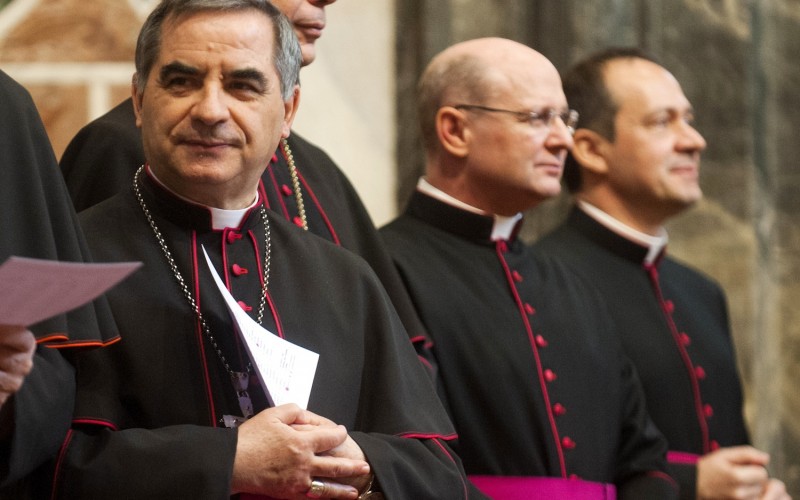Outside Audit Suspended: Has Civil War Erupted at the Vatican?
By Ed Condon
The blocking of the PricewaterhouseCoopers audit puts the Pope's legacy as a reformer in peril Yesterday, it was reported that the Vatican had suspended the independent audit of its finances by the firm PricewaterhouseCoopers. The company had been engaged only on December 5 of last year, and for the process to be halted this quickly, even temporarily, seems like a remarkable setback for Pope Francis’s crusade to haul the administration of the Curia, kicking and screaming, into the 21st century. As he broke the news, the always well informed journalist Ed Pentin linked the story to an article in yesterday’s Italia Oggi newspaper, which claimed that manoeuvres were underway to replace Jean-Baptiste de Franssu, a Frenchman and the current president of the IOR, or Vatican Bank, whose term was not expected to come to an end in the immediate future. According to the article, the move to replace De Franssu was also a proxy move against Cardinal Pell, the prefect for the Vatican’s Secretariat for the Economy, who has been the major, if not sole, agent of real reform in the Vatican finances, and who has been the constant target of a campaign of leaks and gossip since taking office in 2014. It has been suggested that curial officials are desperate to see Cardinal Pell removed and both the presidency of the IOR and the job of auditing the curial finances return to Italian hands, before the new rigours of full transparency get past the point of no return. Perhaps the most intriguing aspect of yesterday’s news was the manner in which the suspension of the PwC audit was announced: by means of a letter circulated to all curial departments from the Secretariat of State and signed by Archbishop Giovanni Becciu, who oversees the day-to-day running of the Roman Curia from that department. This is being seen by many as an old-fashioned power play, with the Secretariat of State having traditionally functioned as a sort of prime minister’s office in the running of Vatican affairs and being the immediate centre of power below the Holy Father. It is not to be doubted that the autonomy and vigour of Cardinal Pell’s reforming work has created some resentment among other curial departments, and State in particular. After centuries of a settled, cosy, distinctly Italian way of doing things, Pell’s defiantly outsider perspective and methodology has been as jarring as it has been effective. To be clear: Cardinal Pell has many enemies in Rome who never wanted him there and who would love to see him leave. From this perspective, the idea that the Secretariat of State, which in addition to being the more traditional power centre is also the most solidly careerist in its makeup, is trying to tame Cardinal Pell and his department and reassert control is compelling. But there is one problem with this theory: it isn’t legally possible. If you read Fidelis dispensator et prudens, the motu proprio which established both the Council and the Secretariat for the Economy, and the office of Auditor General, the document is absolutely clear that they have total autonomy, they report directly to the Holy Father and through no other department. Bluntly put, Archbishop Becciu does not have the authority to cancel a stationary order originating in Pell’s department. Since only Pope Francis himself has the power to suspend the audit or to over-rule Cardinal Pell, why is a letter coming from the Secretariat of State announcing decisions well outside of its purview? There are only two plausible explanations I can think of. Either the Secretariat of State is deliberately exceeding its authority in an attempt to obstruct Cardinal Pell at all costs, in which case we are seeing something akin to open civil war in the Curia, not just between individuals but whole departments. This would be a nightmarish scenario for the Pope and effectively signal that the Vatican was totally out of control. The other explanation is that it was Pope Francis himself who suspended the audit and gave the Secretariat of State authority to circulate the news. Given that reforming the Curia is the original priority of this pontificate, this would be a deeply significant move by Francis and one which begs a host of other questions. Cardinal Pell, for his part, has been circumspect in his reaction, saying only that he was “a bit surprised” at the the announcement and that he expects the audit to resume “shortly”. What is sure is that the Pope’s personal legacy as a reformer is at stake and, sooner or later, he is going to have to get personally involved.
|
.
Any original material on these pages is copyright © BishopAccountability.org 2004. Reproduce freely with attribution.
